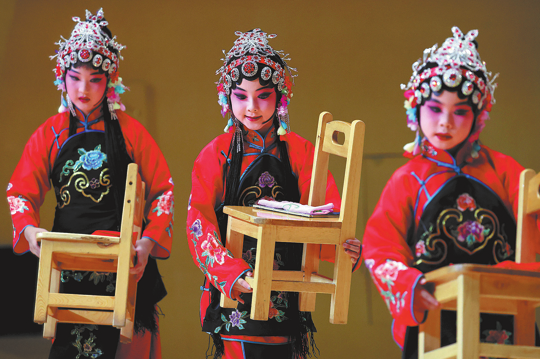Hunan bars use of AI to prescribe medicines

Health authorities in Hunan province have explicitly prohibited the use of artificial intelligence to write prescriptions, requiring all e-prescriptions to originate from physicians certified under the province's medical insurance system.
According to a notice issued recently by the Hunan Healthcare Security Administration, all designated medical institutions must be fully connected to the provincial electronic prescription circulation platform to ensure traceable prescriptions and transparent processes.
The notice also bans internet-based hospitals from using AI-generated prescriptions. Internet hospitals must integrate their systems with the provincial medical insurance electronic prescription center to facilitate prescription transfers, and physicians are required to conduct thorough consultations — either with patients or their families — before issuing prescriptions.
To enhance medication safety, pharmacists must perform a "dual-review" process. After an initial verification by medical institution pharmacists, retail pharmacists must conduct a second review to confirm the authenticity, appropriateness and compliance of prescriptions.
The policy underscores Hunan's efforts to standardize prescription practices. At the same time, hospitals have increasingly adopted DeepSeek, an advanced AI system, to enhance efficiency in research and administration.
However, the growing role of AI in hospitals has raised public questions about whether patients still need to seek help from doctors when AI can provide detailed medical suggestions.
Three hospitals in Hunan — People's Hospital of Hunan Province, Hunan Chest Hospital and Chenzhou First People's Hospital — have successfully implemented localized deployment of DeepSeek, according to the local media outlet Hunan Daily.
On Feb 16, People's Hospital of Hunan Province integrated Deep-Seek with its office automation system, streamlining administrative tasks such as approvals, scheduling and document processing.
As of Friday, DeepSeek has processed 4.27 million requests, with an average of 1,237 active daily users among medical staff, said Lu Xi, deputy director of the hospital's information center. The platform is frequently used for interpreting test results and providing medication guidance, he said.
DeepSeek is also widely used in scientific research, where it assists medical staff in accessing cutting-edge research findings and extracting key information from medical literature, helping to accelerate research processes, Lu said.
In clinical practice, DeepSeek is being used for decision support. At Hunan Chest Hospital, the AI-based "Medical Research Assistant" has helped optimize tubeless thoracic surgeries by providing precise recommendations based on extensive medical knowledge.
Shi Zili, director of the hospital's surgery department, compared DeepSeek to a mentor that helps "correct your homework" and said it has improved clinical accuracy.
The increasing presence of AI in hospitals has also sparked concerns that it could replace doctors. However, medical professionals emphasize that AI serves as an invaluable assistant rather than a substitute.
AI aids in diagnostics and treatment suggestions, but experienced healthcare providers make the final decisions, considering the unique circumstances and needs of each patient, they said.
He Qing, vice-president of Hunan Chest Hospital, said medicine is not just about knowledge and skills, but also involves humanitarian concerns.
"Doctors need to fully consider patients' conditions and concerns before providing medical advice and support," He said. "In the short term, AI cannot replace doctors, as it can only offer suggestions. Doctors make the final call."
Lu from the People's Hospital of Hunan Province said AI has limits in handling complex cases and providing diagnoses tailored to individual needs. He stressed that the experience, instinct and consideration of individual differences by doctors play a key role in medical decision-making.
zoushuo@chinadaily.com.cn
- Co-hosting Games enriches 'one country, two systems'
- China's top court highlights domestic violence cases to raise awareness
- Tibetan large language foundation model launched in Lhasa
- Macaque survives over a year after pig kidney transplant in China
- Chinese scientists develop broad-spectrum nanobodies for tick fever treatment
- Senior CPC official attends meeting on Beijing's planning, construction




































